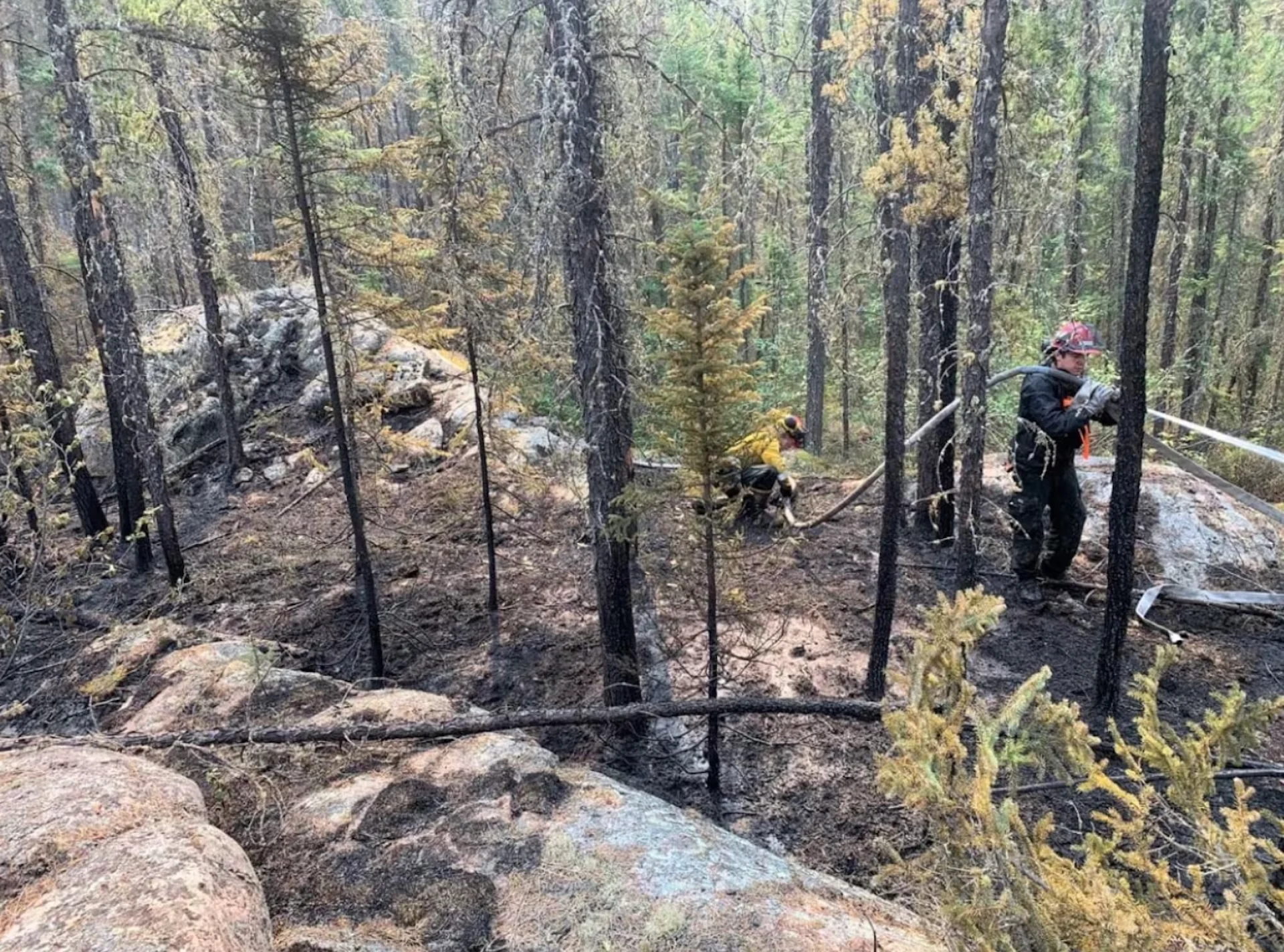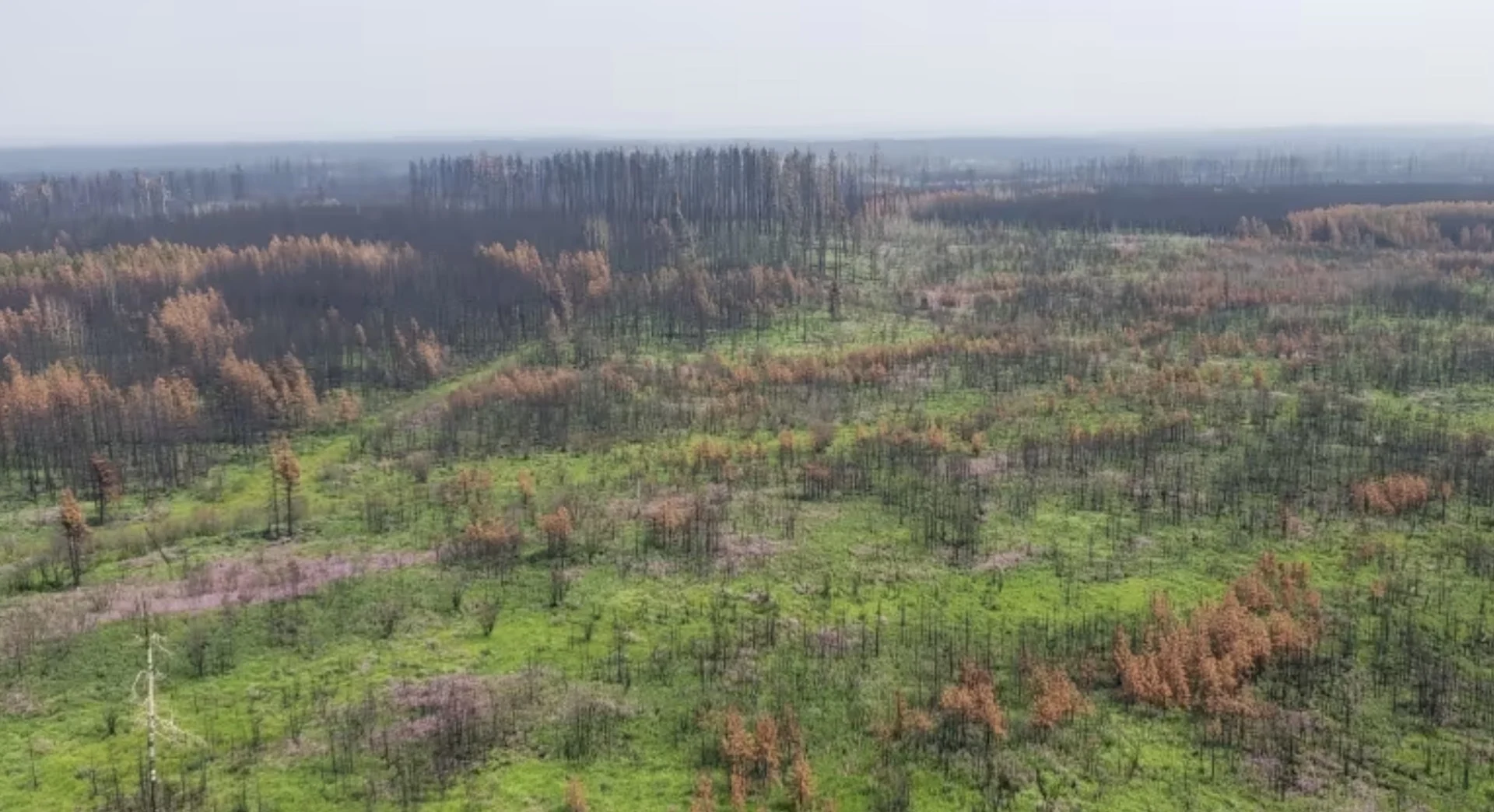Warm, dry winter has increased the wildfire risk in Alberta
CBC
Published on Dec. 23, 2023
Some counties, municipalities instituting firework bans and fire restrictions
While winter so far this year in some of Alberta has been mild, the warm and dry conditions also mean increased risk of wildfires throughout the province.
"With the lack of snow that we're currently experiencing in Alberta, and warm weather, we're seeing a hike in fire danger throughout the forest protection area of Alberta," said Josee St-Onge, a provincial information officer at Alberta Wildfire.
"That means that a lot of vegetation, like dried grass, is currently exposed, and that's excellent fuel for a fire," she said.
WINTER 2024: El Niño will play a critical role in the weeks ahead
There are 64 wildfires presently burning in Alberta as of Thursday afternoon, according to the Alberta Wildfire Status Dashboard. None of them are out of control or threatening communities, St-Onge said.
"But we are still concerned about the situation, because it is very dry, and it just takes a little bit of wind to pick up fire activity."
There are a few large wildfires that ignited in the spring or summer of 2023, and will continue to burn into 2024, St-Onge said.
Content continues below

Image of crews working on an out-of-control wildfire in Alberta on May 30. (Alberta Wildfire)
Lack of snow cover increases risk
Good snow cover can help extinguish large wildfires, St-Onge said.
"The amount of snow that we receive in the winter does have an impact on how the wildfire season shapes up in the spring," she said.
"If we do get a lot of snow later in the in the winter, and that snow melts off gradually and is absorbed in the soil in the spring, then we'll be in a better shape. The amount of rain that we receive in the spring is a very significant factor," St-Onge said.
Alberta Wildfires already began recruiting seasonal staff for the next year's fire season — including wildland firefighters, St-Onge said.
"So, there's still time and hope that we'll get enough moisture in the environment to have a slower start to the wildfire season. But if these conditions continue, we could see an early start to wildfire season in Alberta [next year]," she said.
Local fire restrictions
Some counties and municipalities have imposed fire restrictions and fireworks bans. In Edmonton, the New Year's Eve fireworks will go ahead.
Parkland County is one of the jurisdictions with a fire restriction. Open fires are prohibited, though fires in pits are still allowed.
"If you have a fire outdoors, mind the area immediately around the fire pit," said Brian Cornforth, the county's fire chief.
He said people should make sure that the fire in a pit is not so large that its smoke, sparks or embers spread into the forested areas.
"We have been called to wildfires that have either been accidentally started, or someone had a controlled burn that got away from them," Cornforth said. "And we've been responding to those all throughout the fall."

A burnt forest near Edson, Alta., on July 20, 2023. (Submitted by Alberta Wildfire)
Content continues below
While Parkland County Fire Services is optimistic that some moisture will come in and get absorbed in the ground, firefighters there are preparing for a "busy" spring, Cornforth said.
On top of the added risk, it's also more difficult to extinguish wildfires in winter, said Cornforth.
"We don't have access to the water in dugouts, or ponds, or streams that we typically would draw water from for equipment or for bucketing with the helicopter — those are frozen over," he said.
Instead, fire crews would have to utilize heavy equipment to move land, trees and brush as a method of fire control, Cornforth said.
"And we remind people, let's not add to a dangerous situation with careless behaviour," he said.
Thumbnail courtesy of Alberta Wildfire via CBC News.
No comments:
Post a Comment